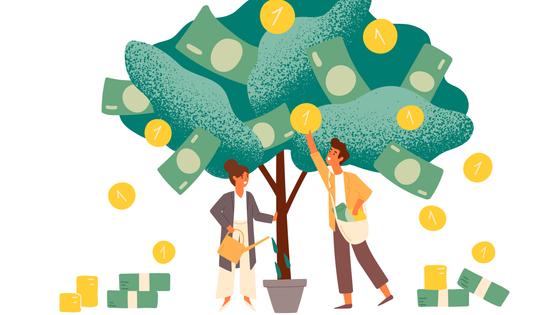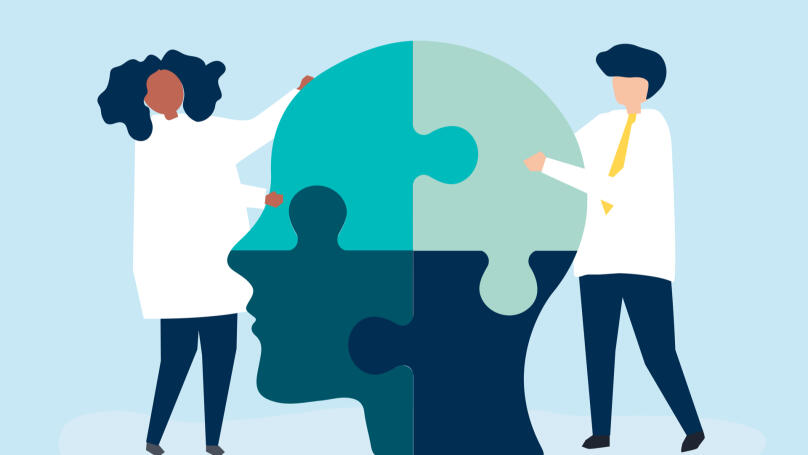How the rich feel about money
Successful and not so successful people think differently - this has long been proven. They have different financial habits and attitudes towards life in general.

How the rich feel about money
- They pay themselves first, then pay others. This is one of the most difficult skills to learn because it always seems that there is no reason to save. We save money all of our life and as a result deny ourselves happiness. But you can get rich by simply not wasting money.
- They love money and are not ashamed of it.
- They keep track of their finances and set goals. Wealth is a big goal that consists of many intermediate goals and steps.
- They are confident, even in unstable situations. This confidence helps you take more risks by actively investing and trying new things. And, therefore, get more money.
- They spend their money wisely. This is not to say that the rich do not make impulse purchases and deny themselves pleasures. But they never spend on pleasures with money that is critical for their budget.
- They diversify their income. Additionally, it makes it easier for a thief if you keep all of your money in one wallet.
- They invest in their education and health. The best investments always start with yourself.
Lucky Mentality vs Loser Mentality

- Successful people know how to count.
They know very well how much something costs; how much it costs them to maintain a house, a car, what the situation on the market is, and what is worth buying and what is not.
- They know the value of their work.
And they work hard to be more successful tomorrow than they are today.
- They are constantly learning. We live in an age of information where technologies become obsolete before even entering the market. All high-paying professions are associated with constant self-learning.
- They take care of their own lives, not others peoples' lives.
Successful people don't have time to gossip.
- They are not afraid to try new things and make mistakes. Because to be wrong is to grow.
- They do not dream, they set goals. And they create a set of actions in order to achieve them.
- Successful people are persistent in achieving their goals and see failure as a difficulty to be overcome.
- They choose their environment carefully. They communicate with those who think like them, and who they can learn something from. Have you noticed how often people who have achieved success and have risen high on the social ladder stop communicating with their former classmates and other people with whom they spent time with in their youth? This is not because they are snobs, they simply have different interests.
Meanwhile, the losers...
- Feel sorry for themselves instead of acting.
- They focus on obstacles and setbacks, but fail to see opportunities.
- Waste money on available pleasures. Spending half of your salary in a restaurant does not guarantee that you will be able to visit these restaurants often.
- They depend on the opinions of others.
- They deny the importance of money in life and say that it is not the most important thing. Well, since it's not the most important thing, live without money.
- They think it's embarrassing to be rich. It is not surprising that they say poverty is not a vice in a country where children have been told the tale of Emelya on the stove for generations.
- They are consumed by a sense of hopelessness. They are sure that they cannot change anything. This opinion is often supported by their environment. Unfortunately, few people can cope with such an attitude alone. The help of a psychologist is often needed to overcome self-doubt.
Luck is a skill

Lucky streaks are one of the most studied phenomena in life. Many scientists are trying to uncover the secret of luck. And they have succeeded somewhat.
They have found a connection between belief in your own luck and actual results. People who believe in their success are better motivated and work with more enthusiasm. The assigned tasks seem less difficult to them than to those who are sure of their own inadequacy. Lucky people are on average 30% more productive than their less "lucky" colleagues.
Who will study better: the daughter of my mother's friend who has been supported from childhood in all of her endeavors, or the girl who is told from childhood that she is worthless and nothing good will become of her? The answer is obvious.
Some people grow up and leave a toxic environment. They can reach new heights, but they need much more effort and time. And they leave some of their money at the psychologist's office while they work through childhood traumas. But it doesn't have to be like this.
Successful people see opportunities where others don't.
Richard Wiseman, a psychologist at the University of Hertfordshire, argues that luck must be understood as a human trait. It is a skill that can be developed. He conducted a series of behavioral experiments in which more than 400 people participated.
He found out that the lucky people are more observant. They listen to their intuition more often, they are more benevolent, and failures cause them much less stress. Unlucky people, on the other hand, tend to negatively perceive even neutral situations. They are restless, less attentive, and get tired faster.
Lucky people are not afraid to go beyond the familiar. Observation and self-confidence give them the strength to try what they are interested in, even if they have never been interested in this new field before. Such people are not afraid to learn something new at any age.
Share this with your friends via:
Latest News

In the UK, £23 million has been allocated for the expansion of the EdTech Testbed program — pilots of educational technologies in schools and colleges.

In the US, Tuskegee University announced the launch of Tuskegee University Global Campus (TUGC) — a new online platform for distance learning.

A significant stage in the development of the alternative education system has begun in West Northamptonshire in the UK: the County Council is actively calling on parents, guardians, and trustees to participate in shaping the future of this key area.

Outwoods Primary School in Atherstone, Warwickshire, having experienced deep sadness after the loss of their famous cat, Silla, has found solace in a new pet – a Maine Coon named Aloysius O’Hara.

In modern universities, artificial intelligence, and in particular ChatGPT, is rapidly transforming from a controversial tool into a full-fledged student assistant.












 9 Career Mistakes Young Professionals Make
9 Career Mistakes Young Professionals Make
 £23 million allocated for the expansion of EdTech Testbed in the UK
£23 million allocated for the expansion of EdTech Testbed in the UK
 Tuskegee University launches Global Campus — a new online platform
Tuskegee University launches Global Campus — a new online platform
 Test: How Psychologically Mature Are You? Check Your Inner Foundation.
Test: How Psychologically Mature Are You? Check Your Inner Foundation.
 Test. Check Your Social Media Dependency Level!
Test. Check Your Social Media Dependency Level!
 Test: What Business is Right For You?
Test: What Business is Right For You?
